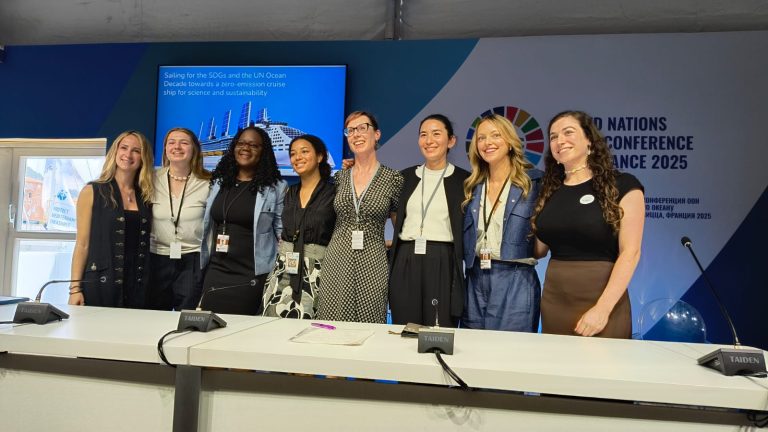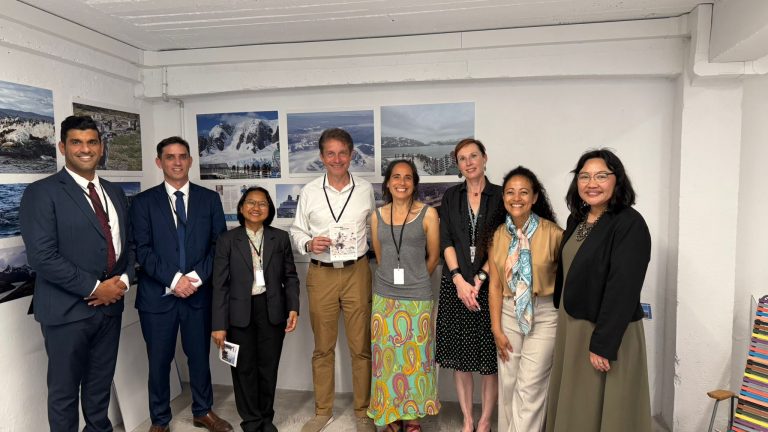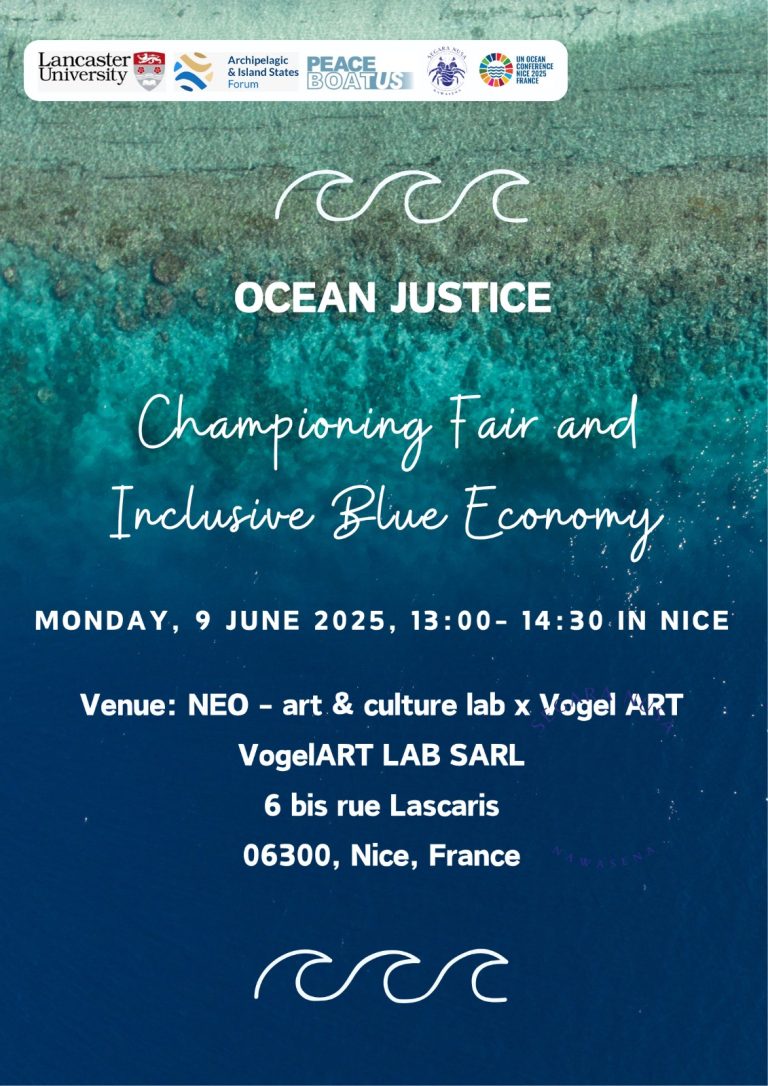
Dr Celine Germond-Duret and emerging youth leaders from the Global North and the Global South together with Minister of Environment of Chile, Hon. Maisa Rojas and Minister for Fisheries and Ocean Resources of Kiribati, Hon. Ribanataake Tiwau, along with Peace Boat and various NGO partners, emphasised the importance of cross-sector partnerships for youth engagement in research, policy, and outreach at the ‘Mobilizing Youth for Ocean and Climate Action – Harnessing Citizen Science and Capacity-Building’ side-event on 10 June in the Blue Zone of UN Ocean Conference III.
Drawing from experience and findings from her SeaSights project, Dr Celine Germond-Duret reiterated the importance of arts in connecting young people to the blue space. As she puts it: ‘any form of arts, photography, painting, sketching are important to invite young people to explore connections with the blue space, and what matters to them. Arts could serve as a bridge between young people and other stakeholders, including decision makers. Decision makers should use arts to engage young people with the ocean and ocean decision-making.’
Minister for Fisheries and Ocean Resources of Kiribati, Hon. Ribanataake Tiwau, stated ‘Nothing about them [youth], without them’. With this statement Hon. Ribanataake Tiwau called all stakeholders to mainstream the need to provide ‘critical places’ for young people in ocean processes and reaffirmed the Government of Kiribati’s commitment to support youth engagement.
Minister of Environment of Chile, Hon. Maisa Rojas, announced that the Government of Chile has incorporated young people in the country’s decision-making process related to ocean-climate change. To quote Hon. Maisa Rojas: ‘By law young people are incorporated in climate change decision, we have to consult three committees, these include youth [committee]. The Ministry of Foreign Affairs teach young people in negotiation. They are part of the negotiation delegation. We thank youth who always push us to go further…’
A youth leader, Kneyone Murray, Caribbean Director of the Blue Planet Alliance, noted that ‘We [youth] are at the table now, but not really at the table. Let’s not wonder what possible but make it a reality’.
Paulina Slawek, Early Career Ocean Professional (ECOP), echoed this concern as she highlighted that ‘Providing physical space [for youth] is not enough. We need coalition building and capacity support’.
Taylor Cargill, EarthEcho International, highlighted the pressing need to ‘make us [youth] feel supported and not feel alone’.
During discussions, delegates highlighted the importance to:
- Integrate youth in national and global high-level ocean policy
- Enable youth to coordinate events and provide meaningful interventions
- Provide support and capacity building for youth to participate in negotiations as part of countries’ official delegations
- Establish infrastructure and joint programmes to support youth in ocean-climate-biodiversity processes
- Champion intergenerational knowledge
- Establish youth representation across different international bodies that address ocean affairs
- Mainstream human-rights based approaches in ocean governance to ensure that policy and decision taken do not violate human rights of young people and other ocean dependent-communities such as Indigenous People, local community, women and girls.
This multi-partners event was co-organised by Peace Boat, Permanent Mission of Kiribati to the United Nations, Permanent Mission of Palau to the United Nations, The Ministry of Foreign Affairs, Government of Chile, the Greek and Dominican Republic governments, Fabien Cousteau Ocean Learning Center, Khaled bin Sultan Living Oceans Foundation, Ocean Rescue Alliance International (ORAI), Indian Ocean Commission, Africa Europe Foundation, PROTEUS Ocean Group, PangeaSeed Foundation, EarthEcho International, Blue Planet Alliance, Oceanic Global, Lonely Whale, CORDAP, Coral Vita, Reefline, Stop Ecocice, Lancaster University, and Segara Nusa Nawasena.


